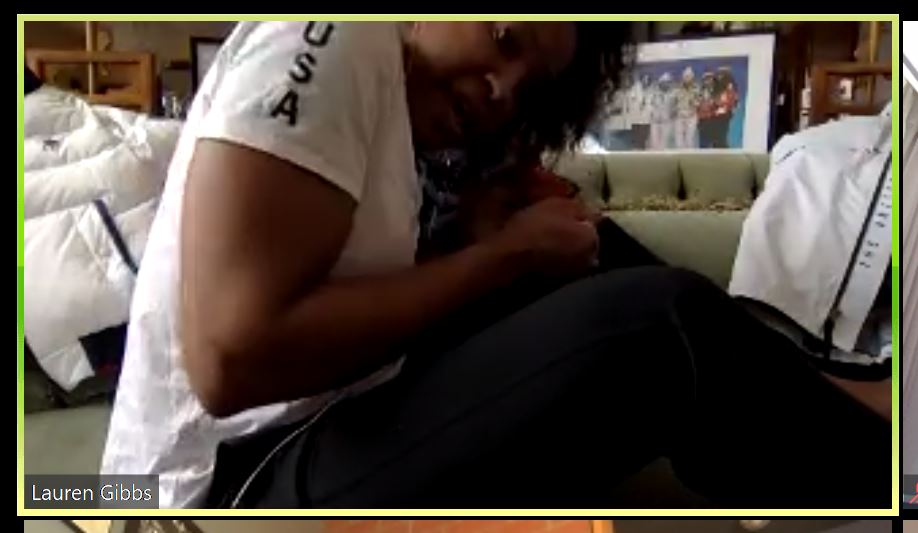 JOC head, Katsuji Shibata (seated, glasses) at press conference post-JOC vote to boycott_Mainichi
JOC head, Katsuji Shibata (seated, glasses) at press conference post-JOC vote to boycott_MainichiIn 1989, the Japanese minister of transport, Shintaro Ishihara wrote an essay that Japanese needed to be more assertive, speak up and say “no.”
In the case of the cold war rhetoric between the US and the USSR, Ishihara wrote that USSR missiles could hit their targets within 60 meters, while Americans bragged US missiles were accurate to 15 meters. Ishihara emphasized that Americans could make that claim thanks to Japanese technology.
“if Japanese semiconductors are not used, this accuracy cannot be assured,” wrote Ishihara in the 1989 book, The Japan that Can Say No. “It has come to the point that no matter how much they continue military expansion, if Japan stopped selling them the chips, there would be nothing more they could do.”
 In the late 1980s, the Japanese economy was challenging the American economy, books on Japanese productivity and quality was must reading in MBA programs, and Japanese people were omnipresent globally, quietly confident about Japanese ways.
In the late 1980s, the Japanese economy was challenging the American economy, books on Japanese productivity and quality was must reading in MBA programs, and Japanese people were omnipresent globally, quietly confident about Japanese ways.
If the Moscow Olympics had taken place in 1988 instead of 1980, perhaps Japan would have had the confidence to say “no” to an American boycott of the Olympics. However, in 1980, that was not the case. Despite the fact that many of America’s biggest allies in Europe decided to go to participate in the Moscow Summer Games, Japan waited until the last possible moment before finally saying “yes” to America and the boycott.
On Saturday, May 24, 1980, the day before the deadline when national Olympic committees had to accept or decline their invitation to the 1980 Summer Olympics in Moscow, members of the Japan Olympic Committee(JOC) met to vote. The president of the JOC, Katsuji Shibata, clearly wanted Japanese athletes to compete in Moscow. But the odds were stacked against him.
- Since January, 1980, officials from the Japanese government expressed a strong view that Japan must boycott the Games, although they were diplomatic enough to say that the final decision rests with the JOC, as per IOC rules.
- In an opinion poll taken in late February, 40% of the public were against Japan sending a team to Moscow.
- A week later, an informal poll of JOC members revealed that the committee was far from making a decision as 12 members were in favor and 13 were against, although 14 refused to provide a response.
Shibata hoped that an outside force would convince the Japanese government to change its position and pleaded with the president of the International Olympic Committee, Lord Killanin, to negotiate with American President Jimmy Carter and Soviet secretary general Leonid Brezhnev to find “an effective solution to the present crisis of the Olympic movement.”
Even a week after the United States Olympic Committee voted on April 12 to support the Carter administration and boycott the Moscow Games, Shibata was still telling the press that Japan should go to the Moscow Games “in principle.”
In May, Japan Prime MinisterMasayoshi Ohira reiterated the government’s position to boycott the Olympics, while Finance Minister Noboru Takeshita said that financial assistance will no longer be available to sports organizations wishing to send athletes.
Grasping at straws, Shibata sent JOC officials to Asia and Europe to gather information, and perhaps uncover support for Japan to send a team.
But finally, the day of the May 24 vote came. And despite the tearful appeals of Japanese athletes, the JOC voted 29 to 13 in favor of the boycott. “With a heavy heart, I report to you that the JOC has voted to boycott the Games,” said Shibata in a Japan Times report.
One of the most promising medalists for Japan, distance runner Toshihiko Seko was present. Said Seko, who made it to the meeting after a 25-km practice run, “I am despondent but after all I suppose we have to follow what the government says because there would be no sports without a government.”
Alas, 1980 was not yet a time when Japan could say no.
 Yuji Takada, wrestler, reacts to JOC vote to boycott the 1980 Olympics_Mainichi
Yuji Takada, wrestler, reacts to JOC vote to boycott the 1980 Olympics_Mainichi
- The 1980 Moscow Olympics Part 1: The American Boycott
- The 1980 Moscow Olympics Part 2: The Comparison to 1936 Berlin
- The 1980 Moscow Olympics Part 3: Great Britain and the European Resistance
- The 1980 Moscow Olympics Part 4: Don Paige vs Sebastian Coe
- The 1980 Moscow Olympics Part 6: Lord Killanin vs Avery Brundage vs Juan Antonio Samaranch – Would Stronger IOC Leadership Have Made a Difference?




























You must be logged in to post a comment.